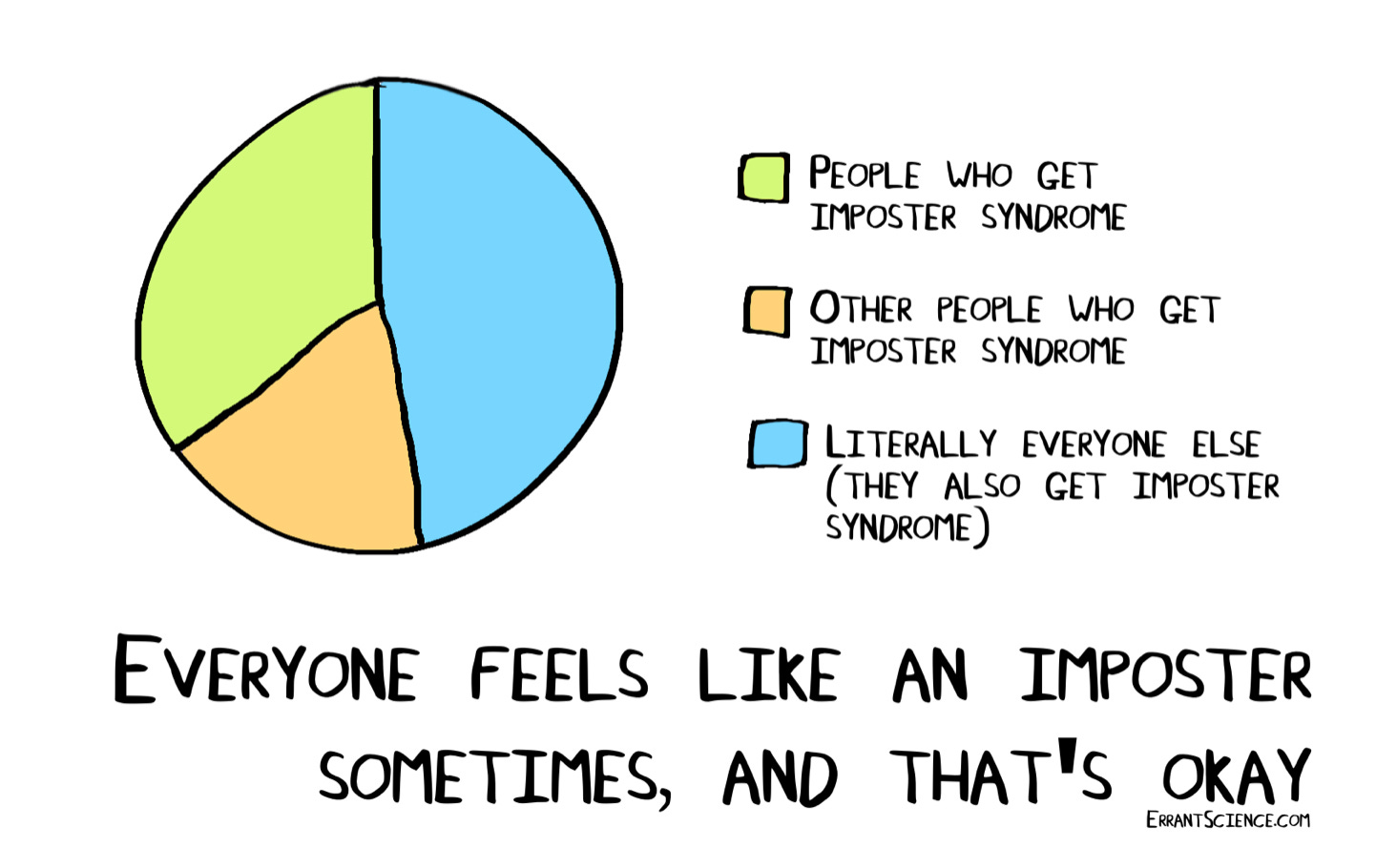I was stuck in a YouTube doomscroll the other night and a TED Talk popped up, which I’ll admit I didn’t watch, but the title got my brain juices activating:
‘Impostor Syndrome is just another way of saying Bravery’
I love it, because it’s actually so true.
Cambridge University is a whole experience. You’re thrown into a microcosm with other students like you, then expected to produce essays, presentations, insightful commentaries and (in my case) coherent conversation in a language you started learning a few weeks ago. It’s a lot. On top of that, I’m a theatre nerd, so that’s another environment full of insanely talented and motivated people. It’s too easy to feel like an impostor.
Yet this whole “bravery” thing… it might just be true. But how can it change your whole outlook?
What is Impostor Syndrome?
Impostor Syndrome is defined as: feelings of self-doubt and personal incompetence that persist despite your education, experience, and accomplishments. A common response many have to counter these feelings is to work harder and hold themselves to ever higher standards.
Yikes.
I’m well acquainted with impostor syndrome at this point; we’re practically roommates.
It’s so common to feel incapable as a person, as a team, as a generation. Not only do we, as Gen Z, have the expectations of our parents, but also of ourselves and the entire global population to get a job, keep up good mental health, and literally save our planet. Yet what we as a generation of ‘impostors’ seem to lose sight of, is that impostor syndrome can be a super positive thing. You heard me. In fact, it may be exactly what we need in order to achieve our goals, and to take risks.
Let’s talk about sh*tting ourselves.
It’s very simple when you think about fear.
When does fear arise? When something we hold dear is threatened. Be that family, our own lives, or our social status. My personal arch-nemesis is the fear of not being as good at something as I thought I was. Destroying the illusion, if you will.
Fear, and the accompanying adrenaline are important for survival reasons- but when it comes to fears that don’t threaten lives… this adrenaline can be channelled into something wonderful.
Bravery is what happens when you decide to do something, in spite of the fear. It’s the “I’m gonna do it anyway” mentality.
And when does impostor syndrome appear?
When you do something that, really, you’ve been a little afraid of.
Enter Little Miss Impostor
For instance, this term I decided to direct a play. I’ve never directed a play before, and to be honest the idea (still) scares the pants off me. 2 weeks to opening night as I write this, and the impostor syndrome is hitting hard: What if my directing is awful? What if the show completely flops? What if we get a bad review? What if the cast realise I’m an incompetent idiot??
Yet when I stop to really think about it, the reason I’m even having these thoughts is because… I did the scary thing and STARTED DIRECTING A SHOW.
I’ve wanted to do this for years, and now that I’ve finally taken the leap, in sweeps Little Miss Impostor. And you know what? I’m actually glad to see her these days. Her presence is the proof that I’ve done something brave for me, that I’ve taken a step closer to my literal lifelong dreams. (Cheesy, I know.)
The more accustomed I get to her voice, the easier it’s becoming to turn the volume down. And every time I hear it, it’s kinda cool to be reminded of how far I’ve come, and the cool things I’m stepping out and doing.
Impostor Syndrome is, unfortunately, the noisy twin of Bravery, but it can be useful as an indicator.
So next time the voice nags in your head, I hope you’re reminded of how much courage you have.
That’s all for this week,
Amenie





